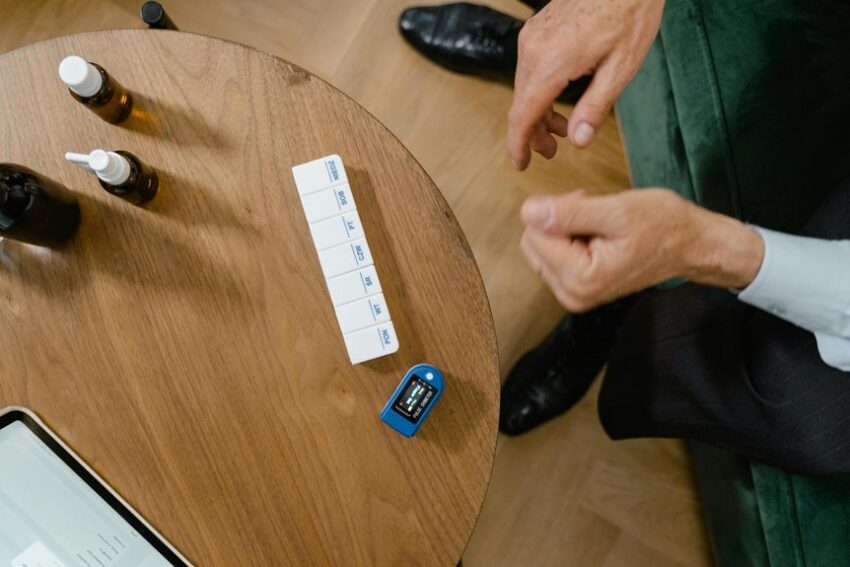As you age, it’s essential to understand how hormonal shifts and physical health can impact your sexual health. Many men face challenges like reduced libido or erectile dysfunction, often compounded by other health issues. However, there are practical steps you can take to enhance your sexual vitality. Let’s explore how lifestyle changes and open communication can empower you to navigate this phase of life with confidence and intimacy.
Understanding Hormonal Changes
As you age, it’s essential to understand how hormonal changes can impact your sexual health. Testosterone levels naturally decline, affecting libido, energy, and overall sexual function.
You might notice shifts in your mood, increased fatigue, or even changes in your body composition. These changes can lead to challenges like erectile dysfunction or reduced sexual desire.
It’s important to recognize that these aren’t just signs of aging; they’re often linked to hormonal fluctuations. Staying proactive is key. Additionally, incorporating supplements like Boostaro can support healthy erections and improve overall sexual performance.
Regular exercise, a balanced diet, and managing stress can help mitigate some of these effects. If you’re concerned about your hormonal health, don’t hesitate to consult a healthcare professional. They can help you navigate these changes and tailor a plan to support your sexual well-being.
Common Physical Health Issues
While aging can bring wisdom and experience, it can also lead to a variety of common physical health issues that can affect your sexual health. Conditions like cardiovascular disease, diabetes, and obesity can impact blood flow and hormone levels, making it harder for you to maintain your sexual function.
Additionally, erectile dysfunction often becomes more prevalent with age. You might also face issues like low testosterone, which can reduce your libido.
It’s crucial to stay proactive about your health—regular check-ups, a balanced diet, and exercise can make a significant difference. Addressing these physical health concerns early can help you maintain a fulfilling sexual life as you age.
Don’t hesitate to discuss any issues with your healthcare provider for tailored advice and treatment options.
The Impact of Mental Health
Physical health issues can take a toll on your mental well-being, and the connection between the two is significant. When you face challenges like erectile dysfunction or other sexual health concerns, it’s natural to feel anxious or stressed, which can further affect your overall health.
Maintaining a positive mindset is essential for coping with these issues. You might find that staying physically active, eating well, and getting enough sleep can enhance your mental health.
Additionally, don’t hesitate to talk about your feelings with a trusted friend or a professional. Addressing mental health can lead to improved self-esteem and better sexual health outcomes.
Myths About Aging and Sexual Performance
Many men believe that aging inevitably leads to a decline in sexual performance, but this misconception can be misleading. While some physical changes may occur, many men maintain a fulfilling sex life well into their later years. It’s crucial to separate fact from fiction.
| Myth | Reality | Impact on You |
|---|---|---|
| All older men have ED | Many remain sexually active | Don’t assume the worst |
| Testosterone drops drastically | Levels can stabilize or fluctuate | Consult a doctor for clarity |
| Aging means less desire | Desire varies individually | Focus on emotional connections |
| Performance only declines | Many factors influence performance | Lifestyle changes can help |
Understanding these myths can empower you to embrace aging positively and maintain your sexual health.
Communication With Partners
How can open communication enhance your sexual health as you age?
It’s essential to talk honestly with your partner about your desires, concerns, and any changes you might experience. Sharing your feelings can reduce anxiety and foster intimacy, making your sexual experiences more satisfying.
Don’t hesitate to discuss any physical or emotional changes that may impact your sexual health. This openness can lead to better understanding and support from your partner, which is vital as you navigate aging together.
Remember, it’s normal for sexual dynamics to shift, so addressing these changes proactively can strengthen your relationship.
Lifestyle Changes for Better Sexual Health
Making simple lifestyle changes can considerably enhance your sexual health as you age. Start by prioritizing a balanced diet rich in fruits, vegetables, whole grains, and lean proteins.
Regular exercise boosts circulation and stamina, which are essential for sexual performance. Aim for at least 150 minutes of moderate aerobic activity each week.
Limiting alcohol and quitting smoking can also have significant benefits, as both can negatively impact libido and erectile function.
Additionally, managing stress through techniques like meditation or yoga can enhance your overall well-being.
Ensure you’re getting enough sleep, as fatigue can affect desire and performance.
When to Seek Professional Help
Even with lifestyle adjustments to improve your sexual health, there may come a time when you need to reach out for professional guidance.
If you’re experiencing persistent issues like erectile dysfunction, low libido, or painful intercourse, it’s essential to consult a healthcare provider. Don’t ignore changes in your sexual function or emotional well-being, as these could signal underlying health concerns.
Additionally, if anxiety or stress is affecting your intimacy, seeking help can provide effective coping strategies. Remember, discussing these issues with a professional is a sign of strength, not weakness.
They can offer tailored advice, treatment options, and support, helping you regain confidence and enhance your sexual health. Don’t hesitate; your well-being is worth it.
Embracing Intimacy Beyond Sex
While sexual intimacy is often viewed as the cornerstone of romantic relationships, embracing other forms of intimacy can greatly enhance your connection with your partner.
Emotional intimacy, for instance, can deepen your bond through open conversations about feelings and experiences. Take time to share your thoughts and listen actively to your partner.
Physical intimacy doesn’t always have to be sexual; simple acts like holding hands, cuddling, or sharing a warm embrace can foster closeness.
Engage in shared activities or hobbies that you both enjoy, creating memories and strengthening your partnership.
